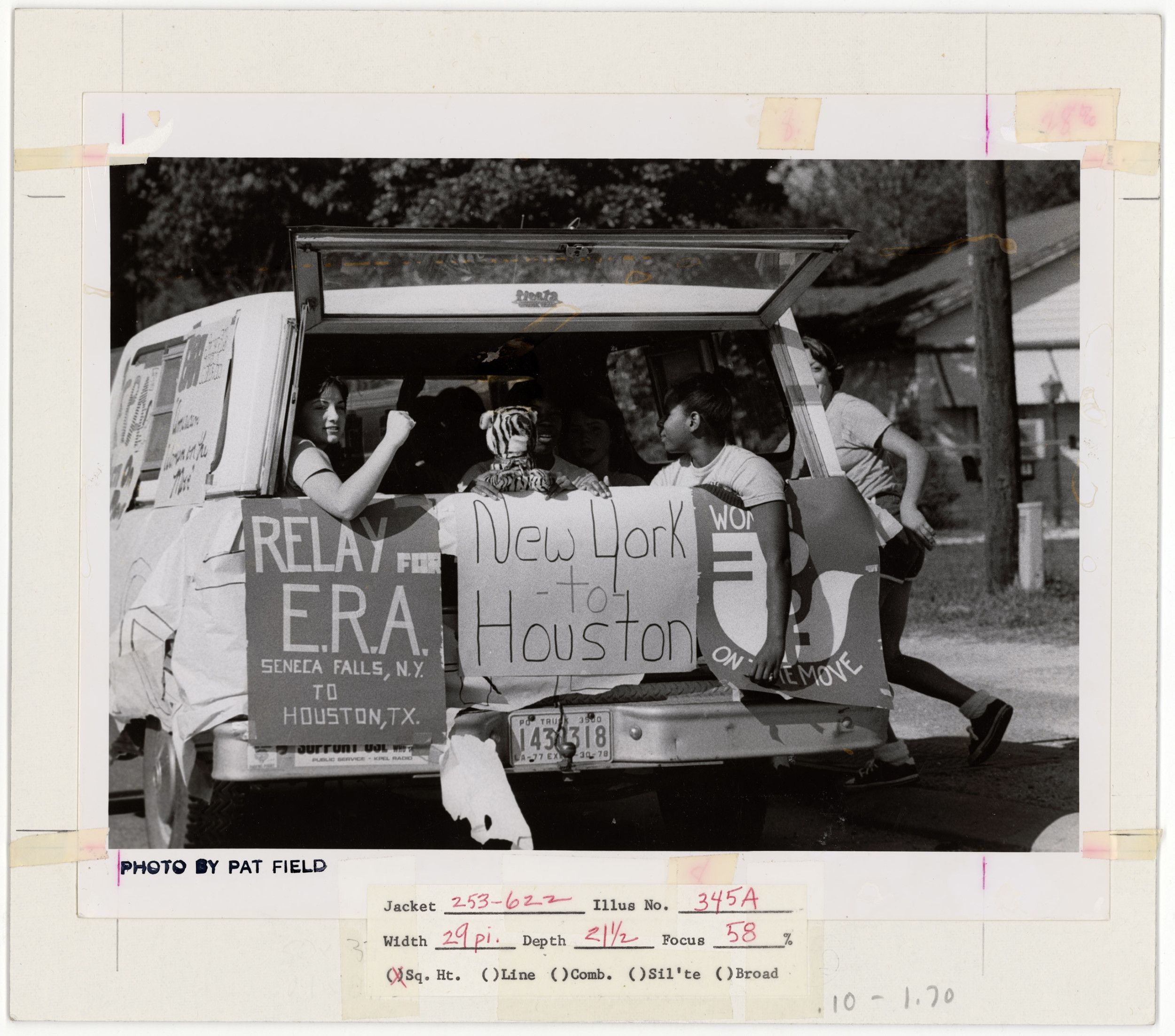Torch Relay from Seneca Falls, New York to Houston, Texas
1977
Add to Favorites:
Add all page(s) of this document to activity:

In this photograph, women embark on the “Relay for ERA” from Seneca Falls, New York (the site of the first women’s rights convention), to Houston, Texas (the site of the National Women’s Conference). The posters on the car read: "Relay for E.R.A. – Seneca Falls, N.Y. to Houston, TX," "New York to Houston," and "Women on the Move."
More than 20,000 people—including First Lady Rosalynn Carter, former First Ladies Lady Bird Johnson and Betty Ford, Coretta Scott King, and Susan B. Anthony II (the suffragist’s grandniece)—attended the First National Women's Conference in Houston, Texas, in 1977. The torch was passed to a new wave of women reformers at the ambitious conference. Two thousand and five state delegates recommended to Congress and the President how to advance women’s rights. Delegates adopted a 26-plank national plan, addressing issues such as career interests, rights for minority women, and the Equal Rights Amendment. The outcome was a National Plan of Action for women’s rights, inclusive of women of color.
More than 20,000 people—including First Lady Rosalynn Carter, former First Ladies Lady Bird Johnson and Betty Ford, Coretta Scott King, and Susan B. Anthony II (the suffragist’s grandniece)—attended the First National Women's Conference in Houston, Texas, in 1977. The torch was passed to a new wave of women reformers at the ambitious conference. Two thousand and five state delegates recommended to Congress and the President how to advance women’s rights. Delegates adopted a 26-plank national plan, addressing issues such as career interests, rights for minority women, and the Equal Rights Amendment. The outcome was a National Plan of Action for women’s rights, inclusive of women of color.
The conference adopted resolutions furthering reproductive freedom and equality for gay women, marking the culmination of the radical feminist movement. The planks for sexual freedom elicited conflicting emotions as a rising conservative faction took particular issue with abortion and "lesbianism." While these conservative women were the minority at the conference, their "pro-family" movement gained political power throughout the 1980s.
This primary source comes from the Records of Temporary Committees, Commissions, and Boards.
National Archives Identifier: 7452296
Full Citation: Photograph 220-WC-345A; Equal Rights Amendment (ERA) Posters on the Back of a Station Wagon; 1977; Photographs Used to Illustrate the Report, "Spirit of Houston: The First National Women's Conference", 1977 - 1978; Records of Temporary Committees, Commissions, and Boards, Record Group 220; National Archives at College Park, College Park, MD. [Online Version, https://docsteach.org/documents/document/era-posters-station-wagon, April 19, 2024]Activities that use this document
- The National Women's Conference of 1977
Created by the National Archives Education Team
Rights: Public Domain, Free of Known Copyright Restrictions. Learn more on our privacy and legal page.



